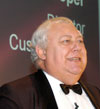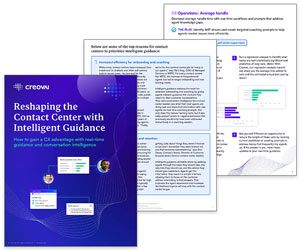You don’t need me to tell you that people are the key to success in your organisation. But are we recruiting and developing people with the right attributes?
Paul Cooper provides a checklist for finding and developing the right people.
The professionalism of customer service in most organisations is growing, and not before time.
At root, excellent customer service is all about “being easy to do business with”. From the customer’s perspective this involves the organisation delivering the promise, providing a personal touch, going the extra mile and resolving problems well.
Research shows that organisations that gain such a reputation can significantly out-perform others, and in the private sector improve profit per employee and reap the rewards of high net margins, thus driving up the return on total assets.
And such a reputation comes primarily from the performance of the people in the organisation.
Customer-facing jobs have been defined too often by organisational need and internally focused activities and processes.
Are these attributes on your job description?
Now this is changing. More and more organisations are recruiting, training and developing people who can:
- Use well-developed behavioural skills in a way that enables them to treat each customer as an individual and identify opportunities for enhancing the service provided
- Resolve customer problems, proactively and reactively, based on their ability to identify and interpret service issues properly
- Appreciate the “bigger picture” so they can make better decisions by understanding the implications of their actions for the organisation
- Identify opportunities for improving procedures and systems
- Work well with colleagues so that learning and experience is shared
- Understand and keep up to date with their organisation’s objectives and services.
Avoid sheep-dip training.
Training has an important role to play, but too much money is still wasted on “sheep-dip” courses, or checking individuals off against endless lists of functional competencies that fail to engage participants in thinking through the issues for themselves and do not give them the opportunity to practise their skills and get some objective feedback about how they perform.
[Also see our article on sheep-dip training. https://www.callcentrehelper.com/how-to-improve-your-training-department-1985.htm – Editor]
My firm view is that customer service professionals are most likely to raise their performance and potential if they are given training and development opportunities that will enhance their personal effectiveness.
Developing self-assurance
Good customer service comes from those who have been given the opportunity to develop the self-assurance and self-esteem to be themselves in the way they manage relationships with customers. If this can also be done by providing the employee with an externally recognised qualification then so much the better.
Developing front-line managers
Supervisors and managers also have a crucial role to play in providing the leadership that will create the working environment to make this possible. Front-line managers in particular should review their performance against good-practice standards to ensure they have the skills to meet the challenges they face.

Paul Cooper
This involves coaching and mentoring their people as well as managing cultural and technology changes in the face of cost pressures and continually rising customer expectations. No one said it was going to be easy!
Reading it doesn’t make the changes happen
And in final conclusion, if you have found the above interesting and valuable, please do something about it!
Reading it doesn’t make the changes happen. As put so well by Bob Sutton, US customer service guru: “Too often people get ahead by saying smart things rather than doing smart things”.
Author: Jo Robinson
Published On: 6th Apr 2011 - Last modified: 18th Aug 2025
Read more about - Call Centre Management, Customer Service, Employee Engagement, Management Strategies, Staffing, Training and Coaching



















